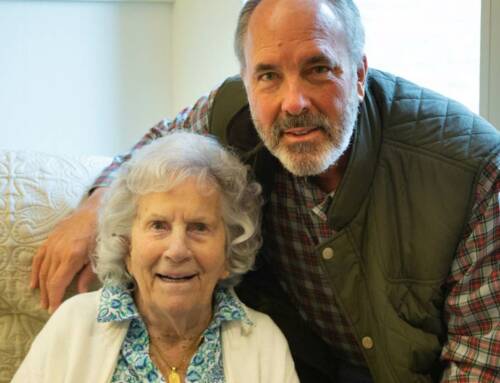Many people have elderly parents or grandparents who are part of the older demographic hit hardest by COVID-19. According to the Centers for Disease Control, adults 65 years and older are at higher risk for coronavirus. Although social distancing may reduce the risk of older adults getting sick, it can leave seniors vulnerable to isolation and loneliness, which could lead to depression, anxiety and other health problems.
Although social distancing means you can’t visit and spend quality time with your elderly loved ones in personal care and long-term care facilities right now, you can still stay in touch via phone and video chats. Here are some tips from Masonic Villages recreation therapists, social workers and other staff on how to talk to your loved one about how he or she is feeling:
- Help them to reflect on a difficult time they have gone through in the past, i.e. a sickness, living during a war, etc. “We sometimes forget how strong and resilient we are until we think about uncertain times that we have gotten through before,” Alyssa Kaufmann, social services coordinator at Masonic Village at Lafayette Hill, said. “Family members can ask, ‘what do you need?’ or ‘what can I do to help you right now?’ Having choices empowers residents, while also providing them with support.”
- Don’t ignore their feelings if they are sharing their frustration of being in their rooms – instead, validate their feelings. Assure them they’re not alone.
- Prepare ahead of the scheduled call and be able to provide some family updates; have photos you can share during the video chat. Show them your family and pets. Show them your garden or special project. Give a virtual tour of your house or yard.
- Reach out to a staff member if your loved one shares something concerning with you and/or if you are concerned with their mental health.
- Let your discussion be guided by your loved one. If they are watching the news and want to discuss the pandemic, don’t ignore them. This will only increase their anxiety. If your loved one doesn’t keep up with the news, don’t bring it up as this, too, will increase their anxiety.
- Most importantly, be in the moment with your loved one!
Send a smile to residents in our personal care and nursing areas by sharing notes, cards, pictures and other items through our Sending Smiles program. Find wish lists and addresses for where to direct items here.




